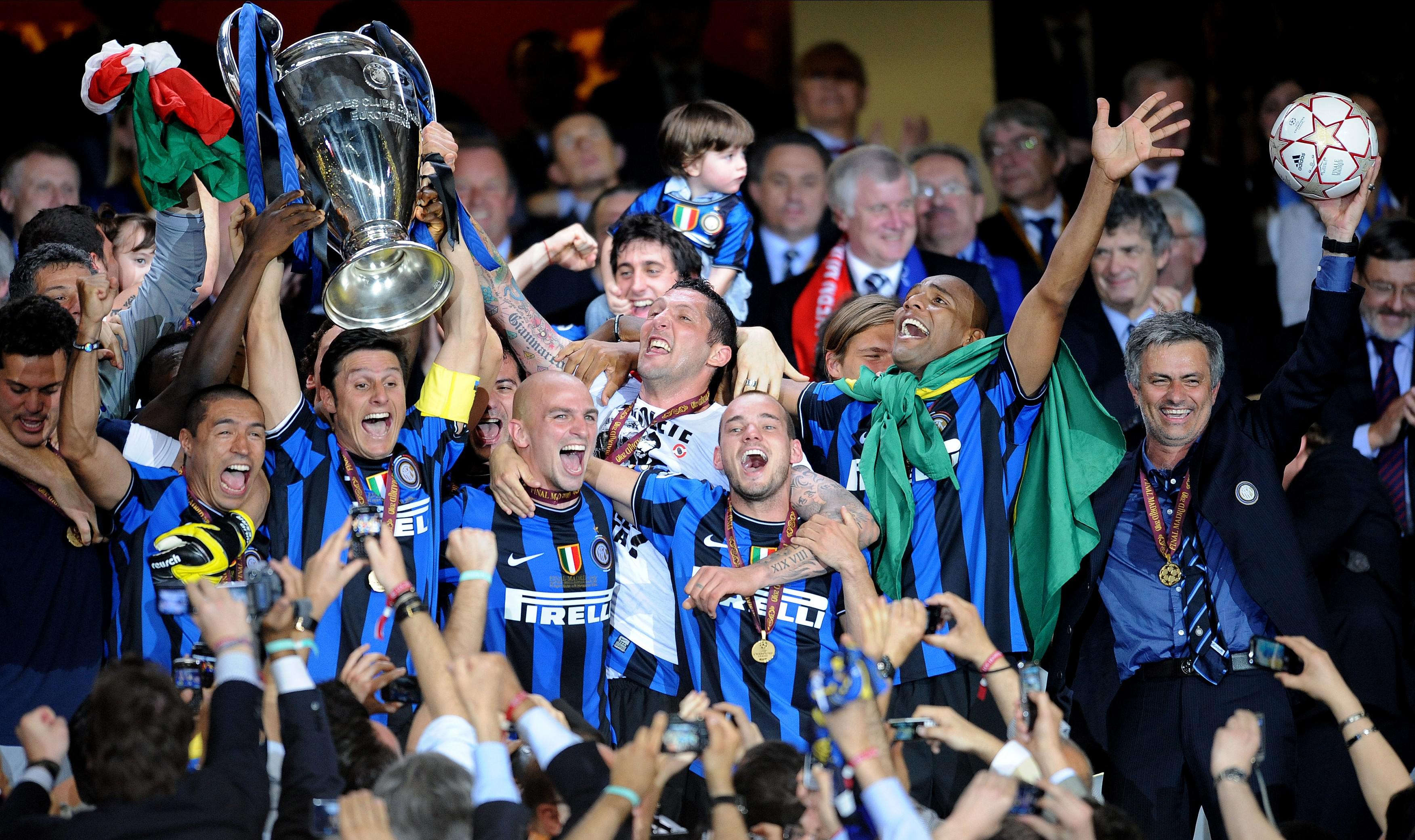England at Euro 96: The untold story of the summer football almost came home
Shearer, Sheringham, Venables, Gascoigne, McManaman, Baddiel and more reminisce in Euro 96, the last time England enjoyed tournament success on home soil...
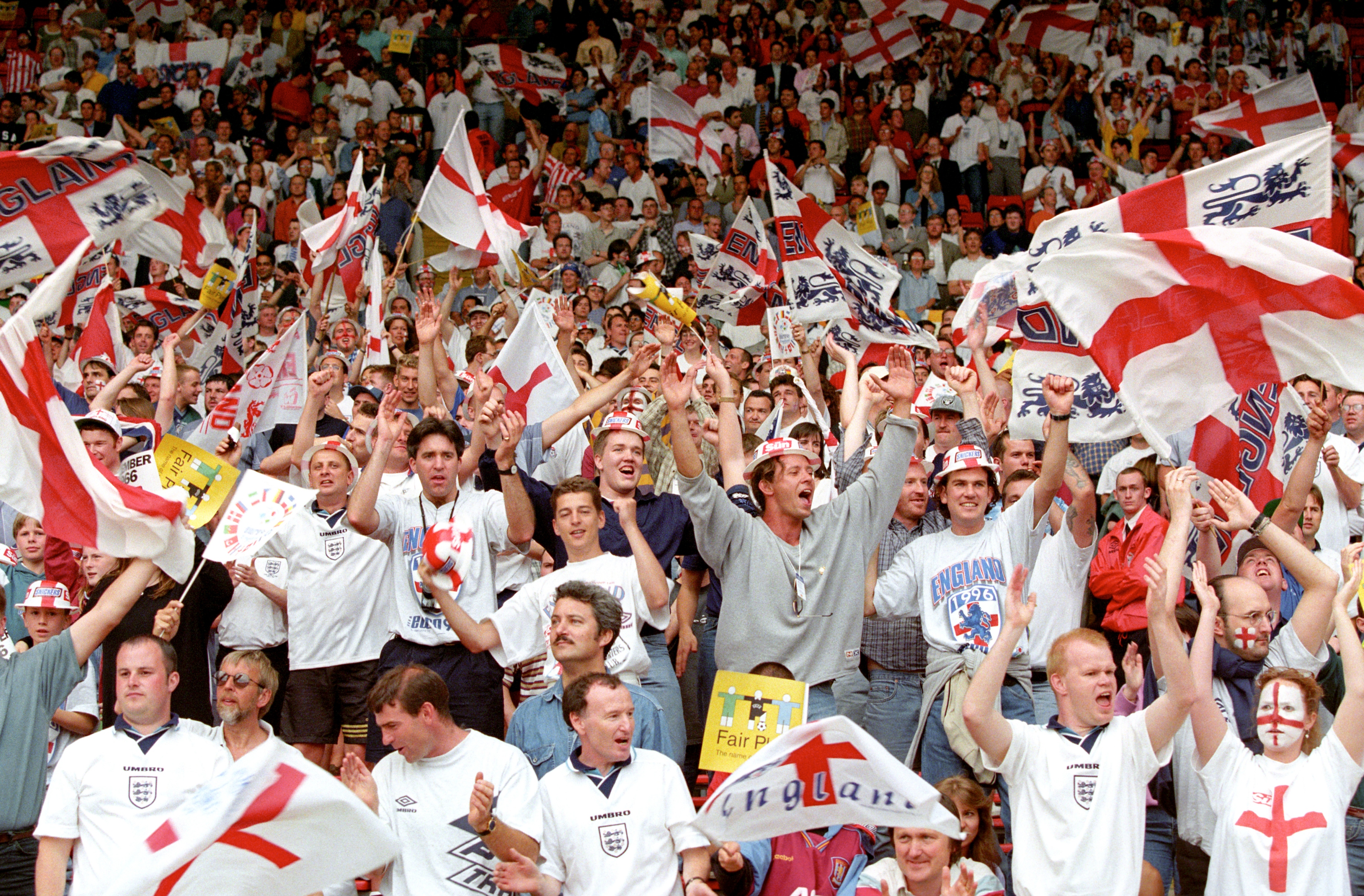
It’s the early hours of Thursday, June 27, 1996 and England's Euro 96 is over. The street cleaners brush away the last of the debris, the plug has been pulled on Wembley’s floodlights, and the Twin Towers are left alone to ruminate once more on a nation’s heartache.
A group of young men huddle in a bar, not wanting to go to bed, not wanting to say goodbye, because that would confirm it really is all over. They sit, talking about the match and the six weeks before it. This is the England squad, freshly knocked out of their own European Championship by the old enemy, Germany – using their old weapon, penalties.
“After the semi-final, we’d been told we could drive home, but not one of us did,” remembers Teddy Sheringham. “The atmosphere was dead… dead… dead. The bubbly nature of the squad had gone, but no one wanted to leave. Even in defeat there was a togetherness. So we all stayed there, had a few beers and reminisced.”
It all ended in beers. To the press and the public, it had started the same way, with the squad vilified for its boozy antics on a pre-tournament tour to Hong Kong. Overpaid, overindulged and overly intoxicated off the pitch, this England team were stagnant and predictable on it. They were nobody’s heroes.
Over the course of five encounters at Wembley, however, that slowly changed. With each scintillating performance, the Euro 96 vintage became England’s last truly great football team. They may have lost a tournament, but they won a nation.
This is how they did it...
A new boss
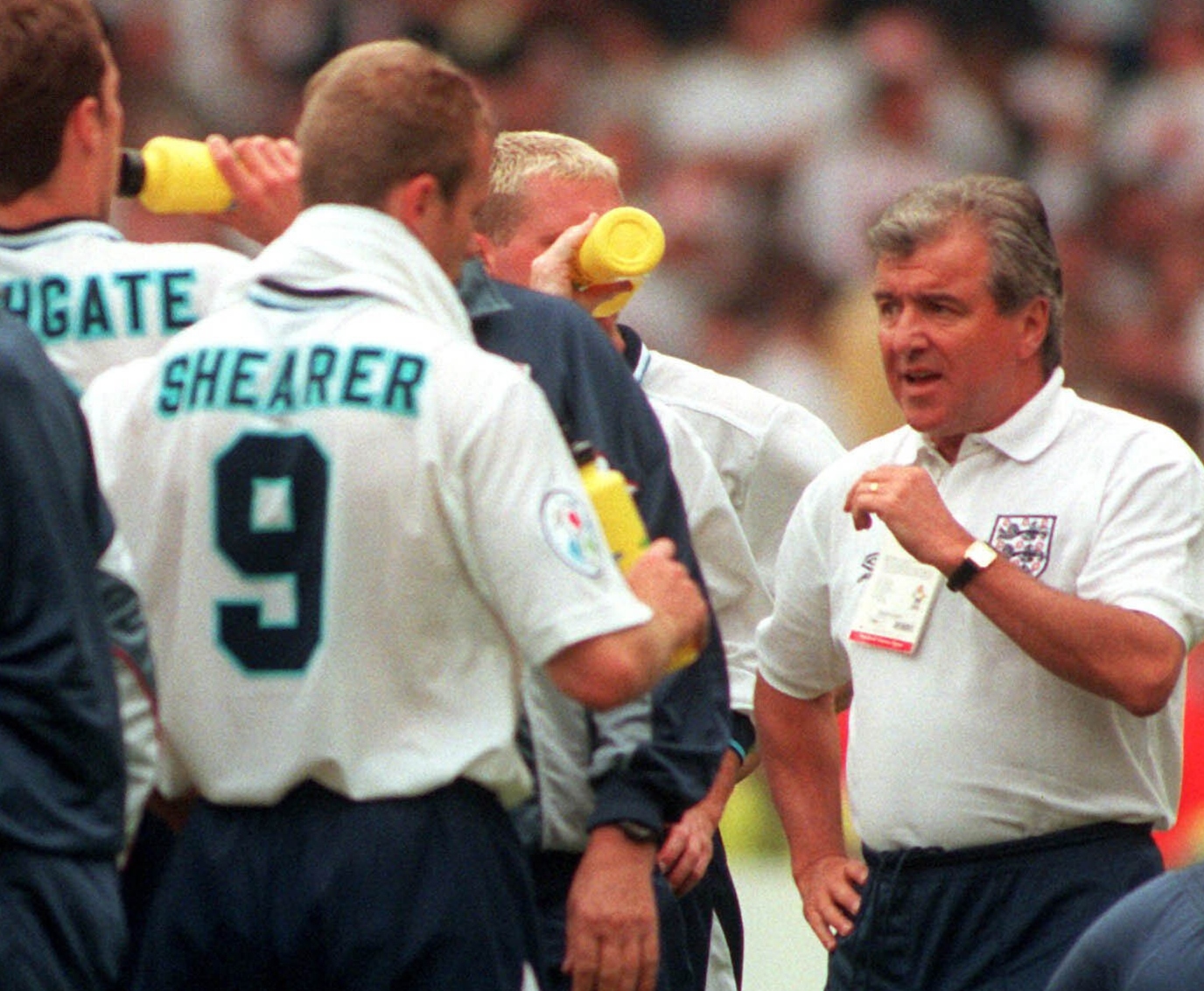
As 1993 became the World Cup year of 1994, the country clamoured for one man. The Graham Taylor years had produced nothing of note, beside references to root vegetables. English football’s allotment had become a quagmire, and it was the rich soil provided by Terry Venables that most people agreed was the antidote.
Get FourFourTwo Newsletter
The best features, fun and footballing quizzes, straight to your inbox every week.
Unlike Taylor, Venables was seen as a forward-thinking coach: a man who had worked abroad, who could improve and motivate players – and serve drinks to the press at his Kensington nightclub.
His first game, in March 1994, was a 1-0 win over European champions Denmark, followed by a healthy 5-0 hammering of World Cup-bound Greece. That the latter was seen by just 23,000 fans at Wembley showed how the nation – despite the Venables factor – was yet to buy into the idea of a new dawn.
The friendlies were clunky, but to the players, there was an air of change. The approach was less rigid; the training and matches geared toward different tactics.
“England don’t have friendly games,” explains Alan Shearer. “If you play badly, you’re still going to get hammered. We worked on different systems, though, and we were becoming a flexible squad.”
That flexibility was clear in the inclusion of players such as Gareth Southgate, a ball-playing defender happy in midfield, while youth was represented in the forms of Robbie Fowler, Sol Campbell, Gary Neville and Phil Neville.
The nation was unconvinced. England went into the tournament ranked 14th in Europe. As ever, the left side was an issue: Graeme Le Saux had broken his leg, and neither Steve McManaman nor Darren Anderton felt natural there. Venables’ Christmas Tree formation was ridiculed, and to sections of the press, the squad had a cliquey feel in which players were picked on reputation rather than merit.
“I’d played under Terry at Spurs and he got me involved straight away,” continues Sheringham. “My association with him didn’t go down well with the press, who said I was one of Terry’s boys.”
Sheringham wasn’t the only one dealing with flak. Since scoring a brace against the USA in September 1994, Shearer had failed to score in any of his previous dozen international appearances leading up to Euro 96 – and the knives were out.
“My confidence wasn’t great,” recalls the former striker. “There were question marks everywhere against my ability at this level. But you have to keep belief; I was still scoring for fun at Blackburn. The best thing Terry did for me, about a month before the tournament, was to take me aside and say, ‘You’ll be starting – you’re my centre-forward’. I thought, ‘Wow, what a boost’.”
“There was no doubt that he would play,” Venables later told FourFourTwo. “He was, quite simply, a goalscorer. You can never leave a player like that out.”
Venables always remained bullish, even saying, “I won’t be satisfied unless we get to the final”. Few, however, were buying it.
“The friendlies hadn’t gone too well,” journalist Brian Woolnough, then of The Sun, commented in 2012. “Terry and the team were taking a lot of stick – mostly from me and my paper – but he was adamant. ‘Judge me when it matters,’ he’d say. He must have said it 50 times.”
Venables saw things that perhaps others didn’t. “We were lucky in that the team was packed full of leaders,” he said. “We had David Seaman, Tony Adams, Paul Ince, Gazza – these were players you could look to when things weren’t going your way. Even the young guys like Gary Neville were confident.”
A trip to the dentist's chair
What was supposed to be a case of getting away from the pressures back home turned into a PR disaster that fuelled them.
Matches against China and Hong Kong were followed by a party at a local bar. The story goes that Gascoigne had a wrestle with Fowler, shirts were torn – then the bar’s dentist chair and its tequila bottles were infamously set upon in front of delighted photographers. Sodden with booze, wild-eyed and far from ‘in training’, the players were served up on the front pages to a damning public.
Gazza was unremorseful. “I only went in for a filling!” he chuckles to FFT. “We got a lot of stick for that, but let me tell you what happened. I was first in the chair, because it looked like a laugh, then a few of the other lads did it. That inspired a good team spirit.”
“The pictures didn’t look very good, did they?” ponders Steve McManaman now, one of those most blighted by the images. “The sad thing is that I wasn’t even drunk when those pictures were taken. We were surprised with some of the stories off the back of it, because they just weren’t true. Talk about negative press.”
The flight home was little better. As Gascoigne tried to get some sleep... well, Fowler tells the story in his autobiography: “Inevitably someone gave him a slap – Alan Shearer, I think it was – and it was hard enough to knock his head off. Gazza went ballistic, because he finds it hard to sleep. He went over the edge. He was walking up and down the aisle, trying to find out who did it. He came down to me and Macca and whacked the TV screen in front of us, which spluttered and soon went out. Then he did the same to Les Ferdinand’s screen. We had to pay £500 each, making it an expensive slap.”
More ammo for the sceptics. “There was a feeling of ‘who do you think you are?’” said Woolnough. “It was the start of the nation thinking that these players were overpaid and over-pampered. It was an era of a huge circulation war between The Sun and The Mirror, and anything went. Because of the huge exposure and money these guys got, the interest was massive.”
To a country embarking on a wave of Britpop and Cool Britannia, the Three Lions were anything but cool. To the players and their boss, this was a sea change. Venables called some of the press “traitors”, and set out to prove people wrong. “He used the whole thing in a positive way,” says Shearer. “‘The world’s against us,’ he told everyone. ‘If it’s a fight they want, then let’s give ’em a fight’.”
England 1-1 Switzerland | June 8, 1996
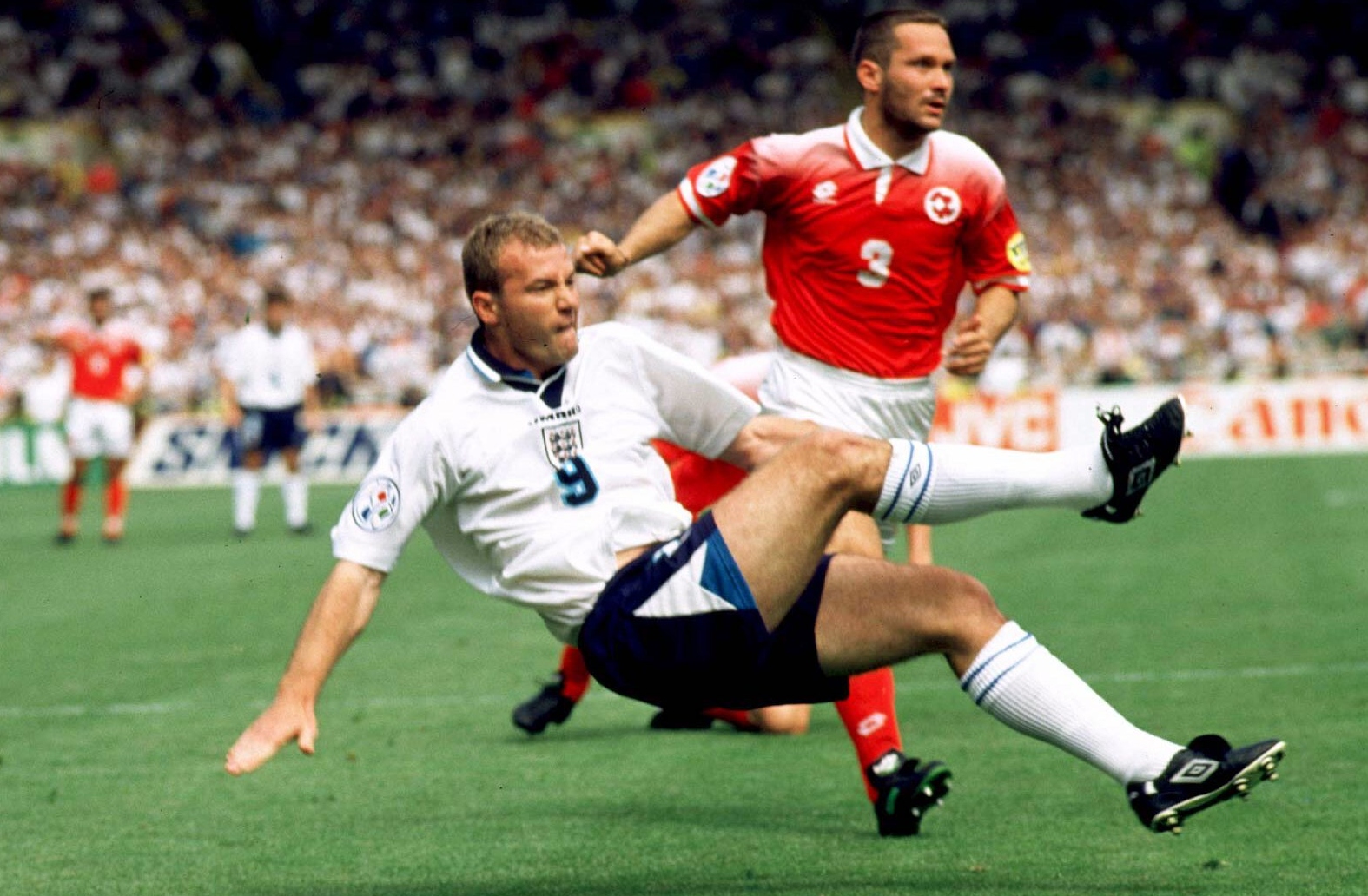
Venables sent his team out for the opening game in a solid 4-4-2. “Terry kept it simple that day, and we did think we’d win,” says McManaman.
Nerves were evident, but a Shearer goal lifted spirits after 23 minutes. “It was a case of ‘thank God for that’,” reveals Shearer, laughing. “I didn’t feel the need to stick two fingers up at the press box. All I wanted to do was prove a point to myself that I could do it on the big stage. I picked my spot and in it went.”
But the Swiss were a well-drilled side – thanks mainly to their recently-departed ex-manager, Roy Hodgson – and England began to struggle. “The second half was hard,” says Sheringham. “It was very hot, the pitch was sticky and we couldn’t play flowing football.”
Kubilay Turkyilmaz scored a late penalty and England’s players – who had reverted to a conservative 4-5-1 for the game’s last 10 minutes – admit they were more than happy to leave Wembley with a point. The press didn’t share their relief. Tension between team and country mounted.
England 2-0 Scotland | June 15, 1996
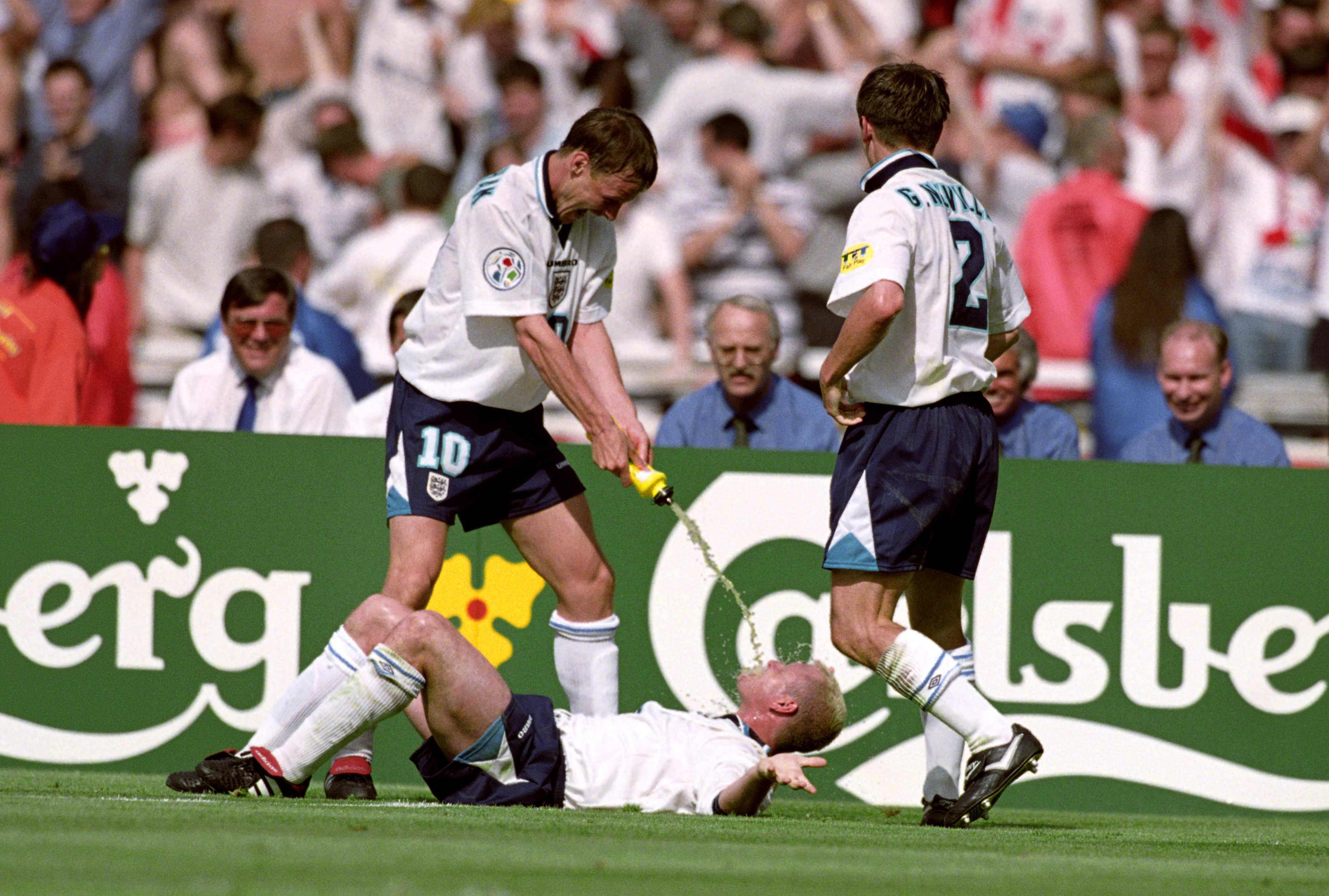
Craig Brown’s Scots had grafted to a goalless draw with the Netherlands, and arrived in just the mood to heap pressure on England.
“The Scottish hate us, so to get them all down to Wembley was special,” says Sheringham. “We were favourites but it was never going to be easy – people like Gary McAllister and Colin Hendry weren’t going to let it be easy.”
They didn’t. England started the game playing a 3-5-2 with Southgate in central midfield, but that sticky pitch was still a problem. After another tense half, changes were made. Few would have known it at the time – bringing on Jamie Redknapp for Stuart Pearce hardly had the continent’s pundits salivating – but the switch ignited England. Redknapp, a promising 22-year-old midfielder at Liverpool, was in good form, and despite coming off again 40 minutes later with a broken ankle, he is credited with turning around England’s fortunes.
“I remember I was training well in the lead-up to that game, hitting balls into top corners,” he tells FFT. “I knew it was my time to play. When I got on at half-time, I felt like I was walking on air. I flew down the tunnel as quick as I could, so I could get my gear on. Stuart Pearce, who I’d replaced, gave me a bear hug and almost strangled me.” It was an act indicative of the spirit within the squad.
Southgate dropped into the back three. Redknapp – in what injuries dictated would be the only tournament minutes he’d ever play with England – immediately began to pull the strings. Shearer scored after a flowing move. Seaman, with the supposed mystic help of Uri Geller, saved a McAllister penalty. A minute later, in a flash of peroxide, Gazza scored an iconic goal with an iconic celebration.
“On the coach to Wembley, I told the lads we should do the dentist’s chair celebration,” recalls Gazza. “I timed the goal well. I saw Colin Hendry coming in, so I flicked it over his head and volleyed it. It was pure instinct. I trained with Andy Goram every day [at Rangers], so I knew how to beat him. I knew I had to get over the ball and hit it low. God, the feeling when I scored was magnificent! I’m so glad I scored that goal.”
“You have to give Terry credit for that half-time,” says Sheringham. “He saw things weren’t right and took immediate action. As for Gazza, that celebration was perfect. It lifted the mood and all of the doubts stopped. We could laugh about what had gone on. That’s the English mentality, to laugh at ourselves, and it was great to take the piss out of it.”
As Three Lions became the soundtrack of a summer, the fans might have been shocked by how easily England adapted tactically. To the team, it was becoming the norm. “You have to find ways of playing to suit your players and beat your opponents,” said Venables. “It’s no good just developing a Plan A – you need to come up with Plan B and C as well.”
Gascoigne, meanwhile, was starting to play with the ball-carrying ferocity that had made him English football’s saviour six years earlier... not that the manic midfielder had ever been put in a box. “Gazza was great to have around,” says Shearer, “but I’m glad I didn’t have to spend years with him at club level!”
Even at the age of 29, a boisterous Gazza would be up at 5am, into the gym for a couple of hours spent lifting weights, and then he’d start banging on the doors of those he felt should be up. Redknapp, Fowler and McManaman kept him busy in hourly shifts, playing badminton, tennis, snooker, golf... or having a food fight. “By the end of the day, we were all cabbaged – except Gazza, of course,” sighed Fowler.
After the flak he’d copped in Hong Kong, the Geordie must have enjoyed a look in The Mirror after the victory over Scotland. “Mr Paul Gascoigne: An Apology” ran the headline, followed by: “Gazza is no longer a fat, drunken imbecile... he is in fact a football genius.” He was a microcosm of the team, and attitudes were changing. It was official: the English were firmly behind England. The worm at the bottom of the tequila bottle had turned.
England 4-1 Netherlands | June 18, 1996
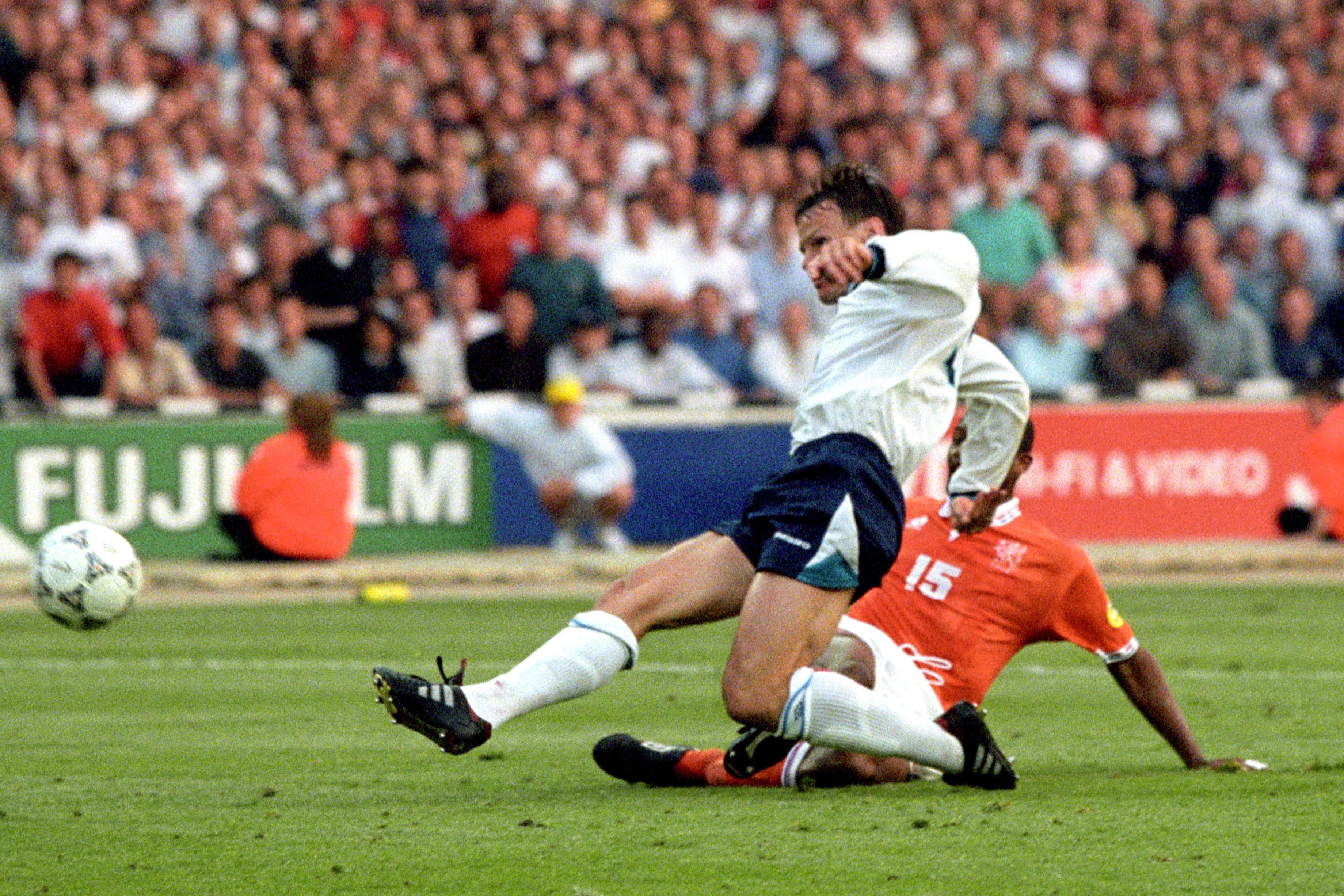
“Wow,” says McManaman at the mere mention of this game. Shearer goes a little bit further. “That was the best performance, the best occasion, the best atmosphere, against very good opposition. It made us realise we could win the thing.”
This was Venables’ team as he had planned it: a fluid 4-4-2, playing with the shackles off. The first goal was a penalty won by holding midfielder Ince with, as the man himself modestly describes it, “a bit of Incey magic”.
“That underlined how adaptable we were,” adds McManaman. “Somebody holds, somebody goes. It’s all flexible and it makes life hard for the opposition. We had so much confidence.” Total football? It wasn’t far off. “We were determined to play a passing game,” Venables later remembered. “If you’re going to play that way, you need players to want the ball and demand it in all sorts of situations. That’s what we had.”
Shearer’s penalty started the party and a Sheringham header kept it going in the second half, before a third goal had the country drooling. Grey Ing-Ger-Lund had become a place far more beautiful. Gascoigne and McManaman played a neat one-two down the left, and the Rangers man dribbled into the box. He drew defenders towards him, then pulled the ball back to Sheringham. As one, the crowd screamed: “SHOOT!”
Sheringham: “I thought about it! It was on a plate, but as I ran towards the ball I could see the fella running from Alan to me to block my effort.”
Shearer: “I was bloody screaming at Teddy to play me in!”
Sheringham: “I feinted to shoot and just knocked it wide.”
Shearer: “Then it was just a case of picking your spot and hitting it...”
Sheringham: “That goal was perfect. We found the extra man. That’s what you look for in a team with Macca, Darren, Gazza and Alan – it was an attacking formation that wanted to interact; to pass and move. That was the beauty. You can’t just go head-to-head with defenders – you have to ask questions. ‘If I drop here, are you going to come with me and leave space, or are you just going to stand there?’ ‘If Gazza beats his man, are you going to go to him or are you going to pass him on?’ ‘If Darren comes inside, who will overlap and fill in wide?’ Terry always asked questions.”
A fourth Sheringham goal capped it off. “No – the Dutch goal capped it off, because that knocked the Scots out,” says Sheringham, laughing. “Perfect.”
The fans couldn’t believe what they had seen. David Baddiel was gobsmacked. “We could actually play,” he says. “This wasn’t about graft or being plucky; this was about skill – the best I’ve ever seen.” The other quarter-finalists would have taken note.
England 0-0 Spain (England win 4-2 on penalties) | June 22, 1996
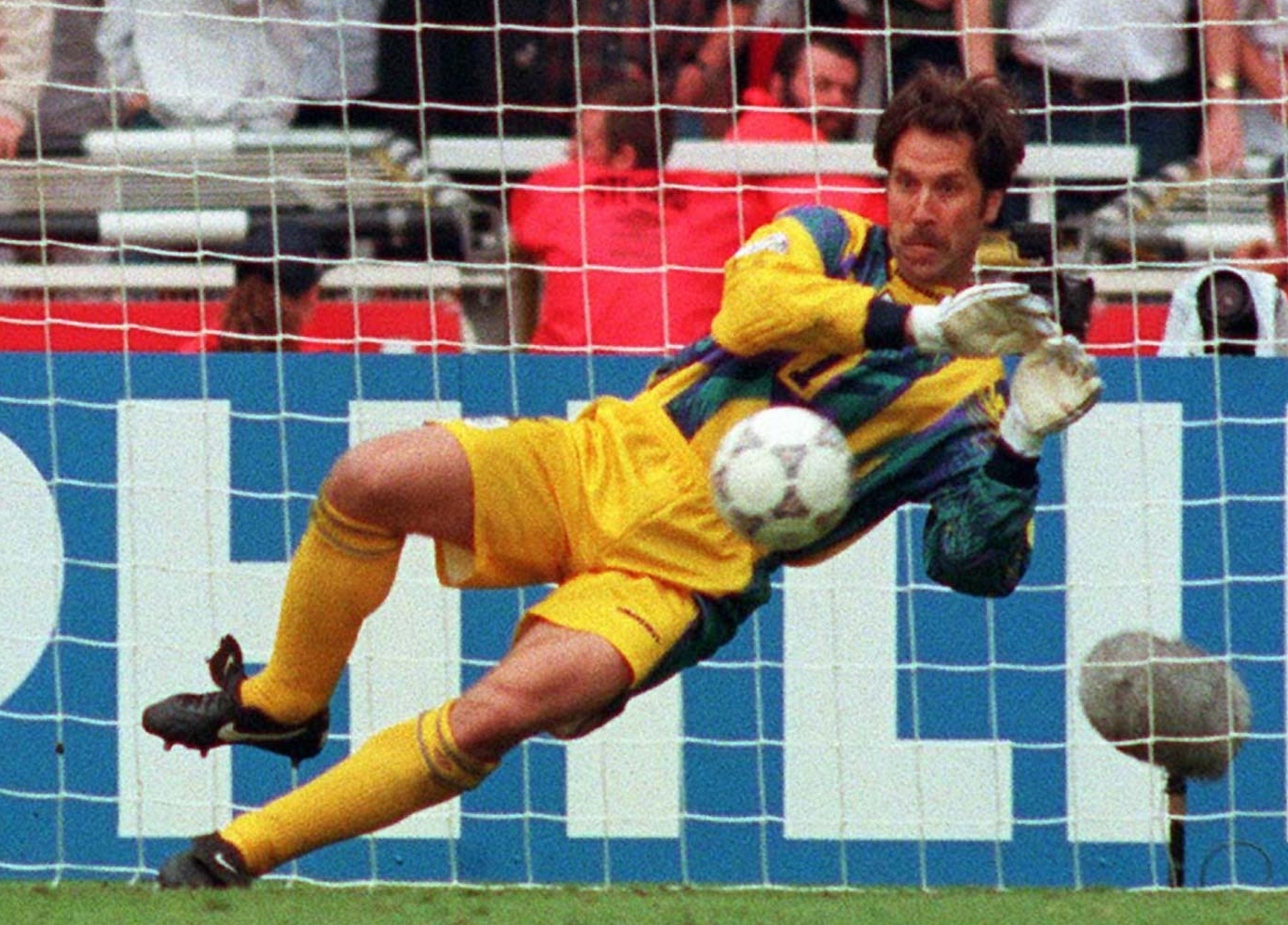
“The day after the Holland match, we went for a walk into the nearby village,” recalls Shearer. “The place was mobbed – people everywhere, going crazy. We realised it was getting big. The country was going mad for us.”
If Spain would make for formidable opponents, so would the hype and the expectation that now followed the hosts. The St George’s cross was everywhere. “It was as if the team was giving the country back its identity,” says Baddiel.
More prosaic English characteristics were required in the quarter-final against Spain, however. “It was tough,” concedes Sheringham. “Terry told us that he knew Spain manager Javier Clemente very well and that he’d play one of two ways. He was adamant: ‘If they line up this way, do this; if they start this other way, do that’. On the day, they played a completely different system and we were thrown.”
Spain edged the game and had a goal wrongly disallowed for offside. England took the game to penalties. Fernando Hierro missed Spain’s opener; England bagged their first three. Up stepped Stuart Pearce. Cue an audible intake of Wembley breath. It was six years after his devastating failure from the spot in Turin. If he missed again, how would he cope? How would we cope? “Stuart was fine when we named the five takers before the game,” says Sheringham, “but it was on all of our minds as he walked to the spot. But – bang! – it’s in. Six years of pent-up aggression coming out! Unbelievable.”
“I remember him shouting at us all,” says Baddiel. “‘Come on! Come on!’ It was as if he was talking in tongues. We knew what 1990 had done to him, so you just bought into his raw emotion.”
Seaman repelled Miguel Nadal’s next effort, and England were through to the European Championship semi-finals.
Subscribe to FourFourTwo today and get your first five issues for just £5 for a limited time only - all the features, exclusive interviews, long reads and quizzes - for a cheaper price!
EURO 2020 England stars show off retro Italia 90 Mash-Up shirt
ENGLAND EURO 2020 SQUAD FourFourTwo writers pick who they'd take this summer
COVID-19 New lockdown guidance: What games will football fans be able to go to under new rules?
Leo Moynihan has been a freelance football writer and author for over 20 years. As well as contributing to FourFourTwo for all of that time, his words have also appeared in The Times, the Sunday Telegraph, the Guardian, Esquire, FHM and the Radio Times. He has written a number of books on football, including ghost projects with the likes of David Beckham and Andrew Cole, while his last two books, The Three Kings and Thou Shall Not Pass have both been recognised by the Sunday Times Sports Book of the Year awards.

